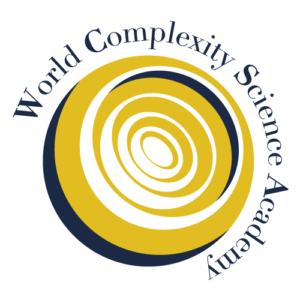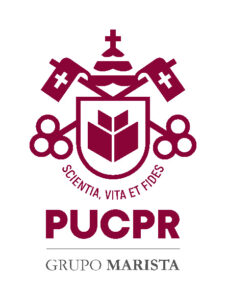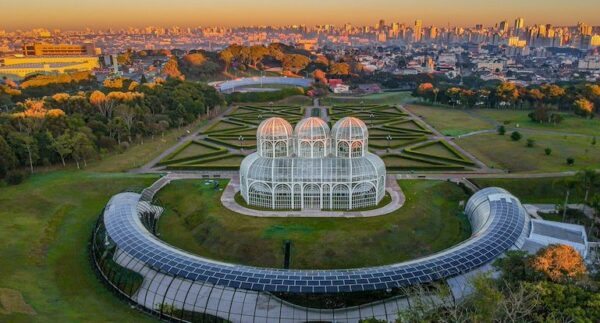

Law School of the Pontificia Universidade do Curitiba, Paranà (PUCPR)
https://www.pucpr.br/escola-de-direito
Conference Venue In Firenze on May 26th and 27th
Law school of the University of Firenze at VILLA RUSPOLI
https://www.dsg.unifi.it/vp-716-come-raggiungerci-villa-ruspoli.html
Conference Venue in Firenze on May 28th and 29th Santa Maria Novella Welcome Visitors Center
https://www.feelflorence.it/it/poi/firenze-welcome-center
This program time settings are on the Firenze time , consider Curitiba time 5h behind
IMPORTANT DISCLAIMER The conference program might be still subject to changes and the conference will be fully recorded
In collaboration with BOTS R HERE this 12th conference will also be an experiment empowered by BOTS R HERE to provide AI multiingual services to allow all speakers to present in their own languages. If the experiment is successful, the future of WCSA and its global network will be with no language borders.
To use BOTS R HERE services please find link and instructions https://www.wcsaglobal.org/simultanous-translation-application-usage-instructions/

Botanical Garden in Curitiba, Paraná, Brazil
10:30-11:00
11:00-11:30
ANDREA PITASI, WCSA President and D’Annunzio University of Chieti-Pescara. https://www.wcsaglobal.org/12th-wcsa-conference-presidential-speech/
11:30- 11:50
Andrè Parmo Folloni, WCSA Vice president and Past Dean of the PUCPR School of Law.
11:50 – 14:30
– Cecilia Serafini, Gabriele D’Annunzio University, Chieti-Pescara, Italy.
– Shann Thurnbull, International Institute of Self-governance, A new way to govern for eternity based on system science.
– Andrea Pitasi, Wcsa President, Think Tanks, White Papers and the Social Complexity of Science: The Case for “Decolonization”.
– Arantzazu Saratxaga Arregi, University of Freiburg, Emergence through Environmental Embedding
– Sergio de Prisco, Centomila Platform, “Centomila”: a decentralized identity and reputation model.
– Jeremie Landweer, CEO of SociisGroup, Belgium, Introducing The LIME Code: A Rhytmic System for Hunan coherence in an Age of Complexity.
– Rafael Cayuela, Economist at Dow Chemicals, Mobility Under the 4th Industrial Revolution (Digital, Sustainable & Social) – Potential Implications for Leaders, Regulators & Innovators.
– Renzo Remotti, Prefecture of Asti, The triple helix and public policy.
14:30 -15:00. LUNCH BREAK
15:00-17:10.
– Laura Leonardi, Department of Social and Political Science of the University of Firenze.
– Andrea Apollonio, University of Firenze and Turin, Memory politics and the EU agenda for future enlargement.
– Giuseppe Russo, University of Firenze. Privileged migration and the de-universalization of citizenship: a glimpse from the world of sport.
– Alessandra Favi, University of Firenze, Asylum Seekers’ Access to Justice before EU Courts: a Labyrinth with No Exit?
– Martina Coli, University of Firenze, Protecting EU democracy through legislation: potential and challenges.
– Laura Leonardi, Department of Social and Political Science of the University of Firenze
– Giorgia Bulli, University of Firenze, Conspiracy theories, anti-European attitudes and contestation of European values: an analysis of right-wingers in Europe.
– Enza Cirone, University of Firenze, Advancing European Autonomy in the Digital Sphere: Challenges,Opportunities, and Future Directions.
– Giovanni Scotto, University of Firenze, Peace mediation and the European Union and the changing landscape of the international system.
– Federica Bicchi, University of Firenze, European diplomacy at the time of geopolitical challenges: diplomacy’s moment or diplomacy’s demis
17:10-17:25 COFFEE BREAK
17:25 -18:55.
17:25– 17:55 Monica Elivier Sánchez González, Universidad de Guanajuato campus León. Dimensions and historicities: keys to observe violence from a systemic perspective – Panel introduction
Mónica Elivier Sánchez González
– Guadalupe Sarahí Saavedra Granados, University of Guanajuato Leon campus, Dark Romance.
– Sofia Altamirano Sierra, University of Guanajuato Leon campus, How do social dynamics and socioeconomic and cultural conditions influence the prevalence and forms of violence against older adults in Mexico?
– Adele Bianco, University “G. D’Annunzio of Chieti-Pescara, Domestic servitude: the most invisible women/human rights violation
– Christina Korak y Rafael Schögler, Translation Studies Université de Sherbrooke, Canada, Recurring patterns: Contact, translation, violence – the unholy trinity of missionary translation
19:00- 20:30 Dinner Time
20:30-22:30.
Clovis Ultramari, Pontifícia Universidade Católica do Paraná (PUCPR), Brazil.
– Paulo Nascimento Neto, PUCPR, Brazil
– Clovis Ultramari, PUCPR, Brazil, Presentation of the panellists and their themes.
– Agnes Silva de Araujo, PUCPR, Understanding complexities taking Curitiba as a reference.
– Ariadne dos Santos Daher, Jaime Lerner Institute, The challenges and complexity of updating past good practices.
– Alberto Paranhos, Jaime Lerner Institute / IPPUC, The gains and costs of being an international showcase.
– Regina Klei, PUCPR, Landscapes in Curitiba and the creation of an identity.
– Paulo Nascimento, PUCPR, Critical summary.
– Harry Bollmann, PUCPR, Urban environmental complexities in Curitiba.
10:30-11:30.
11:30-13:45.
– Igor Pellicciari, University of Urbino.
– Michael Selis, University of Genoa and University of the Studies “G. D’Annunzio” of Chieti-Pescara in co-tutorship with ULB Brussels.
– Pascal Pütz, Colonel, NATO Military Representative – Luxembourg.
– Markéta Minářová, Prague Charles University, The future of EU-UK relations.
– Giulio Antonucci, University of Genoa and University of Milan, Lobbying as the cause and the effect of the democratic deficit in the EU.
– Laura Ponte, University of Genoa and University of Messina, Migration and Energy: A Strategic EU-Africa Partnership Through Italy, Tunisia, and Egypt.
– Riccardo Leoni, Formiche.net, Main priorities for a Sector-based European Common Defence.
– Alon Helled, University of Turin, National resilience means the continuous adaptation of a specific collective unit to either internal or external transformation (or both).
13:45-14:45. LUNCH BREAK
14:45-16:45.
– Monica Elivier Sánchez González, Universidad de Guanajuato campus León.
– Fabrizio Alvarez Fava, University of Guanajuato Leon campus, The difference in social imaginaries between men and women around drug trafficking; the case of adolescents in a high school in Leon, Guanajuato, 2022 perspectives.
– Luis Octavio Sánchez Hernández, University of Guanajuato Leon campus, Sociology and emotions. Observations on the search collectives in Guanajuato. The case of Salamanca Unidos Buscando Desaparecidos.
– Yohanka Elena Martínez Laguna, University of Guanajuato Leon campus, Being a Mother is: Searching Until I Fing You Women’s Participation and Affirmation as Mothers through Membership in Collectives Searching for the Disappeared in Guanajuato.
– Pedro Gonzalez, Northern Arizona University, Families of Pain: The Impossibility of Forced Disappearance and the Micro-Spaces of Conviviality in the Inoperative Community Corona.
– Araceli Salcedo Jimenez Colectivo Familias de Desaparecidos Orizaba-Córdoba (CFDOC), Buscadoras (Searchers): Looking for their Children whether they are Alive, Dead, and or in Clandestine Mass Graves.
16:45-17:00 COFFEE BREAK
17:00 -19:15.
– Francisco Del Canto Viterale, University of North Dakota, US, Global Power Dynamics in the 21st Century Space System
-Adele Bianco, University “G. D’Annunzio of Chieti-Pescara, Space-Based Medicine. Opportunities and challenges.
– Vinicius Guedes G. de Oliveira, Flinders University, Australia, Exploring Latin America’s Space Sector: Unveiling Gaps and Opportunities in the Context of Sino-American Rivalry.
– Luis da Vinha, De Montfort University, UK, Galactic Britain? The UK’s Role in Outer Space Governance
– Maria A. Mariggiò, University G. d’Annunzio Chieti-Pescara, Talking about space biomedicine: limits, risks and countermeasures in research on the effects of microgravity and its applications to human health.
– Tiziana Pietrangelo, Università degli Studi “G. D’Annunzio”, Human metabolism and space studies: challenge for future missions and insights for ageing on Earth.
– Andrea Pitasi, Wcsa President, The EU Space Policy from the Draghi Plan Perspective
-Victoria Baldani Miranda, PUCPR, The complex ethics of space exploration (and exploitation) in the rise of unilateralism
19:15-19:30 COFFEE BREAK
19:30-21:00.
9:30 -11:00
Sonja Radatz, IRBW, Vienna, The Relational View on the Complexity of World Order Emergence
11:00-13:00.
– Roberta Iannone, Sapienza University of Rome.
– Romina Gurashi, Università degli Studi Internazionali di Roma, Peace in Fractured Spaces: Unveiling the Sociological Nexus of Conflict and Cooperation in Planetary Emergencies.
– Gianluca Senatore, Sapienza University of Rome, Sociological Analysis of the Sustainability Transition: A Comparison between Germany and Spain.
– Melissa Sessa, National Research Council, Artificial Intelligence and the Society of the Future: Opportunities, Challenges, and New Perspectives.
– Tiziano Censi, Sapienza University of Rome, The Infrastructural Power of Digital Platforms: The Dialectic Between State and Digital Corporations in Platform Capitalism.
– Ilaria Iannuzzi, Unitelma Sapienza University of Rome, Competition and Vertigo: How Gamification and AI Reshape Social Relationships.
11:00-13:00.
Aula Seminari – Palazzo Hercolani, Strada Maggiore 45, University of Bologna
– Alessandro Martelli, Director of CRIDS at the University of Bologna.
– Martina Massari, Valentina Orioli, Francesca Sabatini, University of Bologna, The Metropolitan governance of Next Generation in Italy: the cases of Bologna and Florence.
– Francesca Neyroz, University of Bologna, A new claim for fundamental rights and the role of cities
– Andrea Pitasi, WCSA President, University “G. D’Annunzio” of Chieti-Pescara, Redesigning Inclusion In the European Union. A three level Hypercity model.
– Cecilia Serafini, University “G. D’Annunzio” of Chieti-Pescara, Dance between social inclusion and urban transformation: a public engagement notebook.
13:00-15:00 LUNCH TIME
15:00-17:00.
– Jo Lernout, Bots R Here, Brussles.
– Willy van de Woorde, Introducing the new Belgian Not-for-Profit Organization.
– Adriana Siliprandi, Centro Universitário UNICURITIBA, International Regulation of Artificial Intelligence: Challenges and Perspectives For Corporate Governance in Brazil.
– Cecilia Serafini, Academic Capitalism, Eduinfotainment and the strategic function of AI based Public Engagement.
17:00-18:00 SOCIAL TIME & COFFEE BREAK
18:00-20:15
– André Parmo Folloni, WCSA VicePresident Pontifícia Universidade Católica do Paraná, Brazil.
– Ana Paula Palácios, Tax Harmonization and Sustainability: The OECD’s Contribution to Energy Transition and Climate Justice.
– Guilherme Martelli Moreira, From Local to Global: The Convergence Between Domestic Tax Law and International Norms.
– Lucas Pereira Nunes, Criteria of justice for the institution or increase of extrafiscal taxes.
– Mariana Matias Ramos, Challenges on the implementation of innovative taxation for Smart Cities.
– Victoria Baldani-Miranda, Comparative analysis of the efficacy of green tax models in Brazil and OECD members: considerations from a complex perspective.
— André Parmo Folloni, WCSA VicePresident Pontifícia Universidade Católica do Paraná, Brazil, Excise taxes in OECD: a critical examination
-Paula Stemberg, Personalized Value – Added tax and cashbackin a comparative Perspectives.
20:15-21:15
Jason Hu, Organizer of the Club of Remy, From Egocentric Thinker to Collective Actioner – JJH Keynote Talk about (And Invitation to) Club of Remy and the Oxford Project.
11:30-13:30.
– Edit Fabó, Institute of Hungarian Research, Research Centre for History, Budapest
– Mónica Elivier Sánchez, University of Guanajuato León campus.
– Edit Fabó, Institute of Hungarian Research, The role of historical figures in modern society.
– Hannia Villalobos Aldama, University of Guanajuato Campus Léon, Violence as a resource that conforms to the Mexican identities for women.
– Mónica Elivier Sánchez González, University of Guanajuato Campus Léon, History, belonging and identity: observations from complexity, University of Guanajuato campus León
– Barbara Lucini, Catholic University of Sacred Heart,Violence and extremisms in the complexity of the world from a sociological perspective.
– Enrico Damiani di Vergada Franzetti, Università di Enna, The Legal (criminal) System and Its Risks.
– Massimiliano Ruzzeddu, Researcher at Unicusano University, Violence and History.
13:30-15:00 LUNCH BREAK.
15:00-16:00.
Presentation of the First published book: Monica Elivier Sanchez Gonzales, Andrea Pitasi (Ed.), Historicidades de la Violencia: Reflexiones Sociohistóricas, WCSA PRESS, Bologna, Brussels, Guanajuato, 2025. ISBN: 978-969-699-286-8
Event also in presence from “G.D’Annunzio” University, Aula 3, DISEGS, Viale Pindaro, 42, Pescara
Adele Bianco
Monica Elivier Sanchez, History of gender violence. A multidisciplinary Perspective.
16:30-17:00 COFFEE BREAK
17:00-18:00.
18:00-20:40.
– André Parmo Folloni, Pontifícia Universidade Católica do Paraná, Brazil
– Martins Knap, Pillar 2 of BEPS 2.0: challenges in implementing the global minimum tax for Brazil.
– Charles Conrado Cordeiro, The Relevance of the OECD in International Investment Governance and Brazil’s Integration into the Global Landscape.
– Izadora Coutinho, Pillar 2, Tax Incentives and Fiscal Sovereignty: Challenges for Developing Countries in Global Tax Governance.
– Jéssica Heinzen Felisberto, OECDs soft law influence on developing countries and the process of implementing Pillar 2 rules in Brazil.
– Lucas Barcellos, Tax Treaties and Foreign Investment: Myth or Reality.
20:40- 22,00.
Alvaro A, Arauz, Ceo of 3A Law Firm , Atlanta
-Michael Hawkins, judge and dean of the National College,
-Brian Duncan, Cunningham Bounds, LLC, Samford University, Cumberland School of Law,
-Michael Powell, Powell IP Law, LLC,Atlanta
-Melissa Davis, University of Georgia School of Law.
22:00-22:40
Prof. André Parmo Folloni
The Conference Scientific Board Is composed from the Conference Chairman, the whole Directive- Scientific Board, https://www.wcsaglobal.org/governance/ and Monica Elivier Sanchez Gonzalez, University of Guanajato.
Altea Croce
Victoria Baldani-Miranda
Romina Gurashi
Ilaria Iannuzzi
Lucas Pereira Nunes (OC Coordinator)
Michael Selis
Melissa Sessa
Paula Stemberg
Cecilia Serafini (Vice coordinator)
By continuing to use the site, you agree to the use of cookies. more information
The cookie settings on this website are set to "allow cookies" to give you the best browsing experience possible. If you continue to use this website without changing your cookie settings or you click "Accept" below then you are consenting to this.